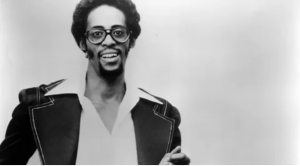
David Ruffin’s Heartfelt Plea: “Walk Away From Love”
David Ruffin, a founding member of The Temptations, possessed a vocal range and emotional depth that set him apart. His solo career, while overshadowed by his time with the group, produced a series of heartfelt and soulful ballads. One such gem is “Walk Away From Love,” a poignant exploration of heartbreak and resilience.
Background
Released in 1969, “Walk Away From Love” showcases Ruffin’s ability to convey raw emotion through his voice. The song’s opening lines, “I’m walking away from love, I’m leaving it behind,” immediately set the tone for a tale of heartbreak and loss. Ruffin’s vocals are filled with pain and regret, yet there is also a sense of determination as he vows to move on.
The song’s arrangement is simple yet effective, with a stripped-down instrumentation that allows Ruffin’s vocals to take center stage. The backing vocals provide a harmonious counterpoint, adding depth and texture to the song. The melody is both catchy and memorable, making it easy to sing along to.
The lyrics of “Walk Away From Love” delve into the complexities of a failed relationship. Ruffin sings of the pain of heartbreak, the difficulty of letting go, and the hope of finding love again. The song’s message is universal, resonating with anyone who has experienced the ups and downs of love.
Ruffin’s performance on “Walk Away From Love” is nothing short of extraordinary. His voice is filled with emotion, conveying a sense of vulnerability and strength. The song’s climax, where Ruffin belts out the final chorus, is a powerful and moving moment.
While “Walk Away From Love” may not have achieved the same level of commercial success as some of Ruffin’s other songs, it remains a beloved classic among fans of soul music. The song’s timeless message and Ruffin’s soulful performance continue to resonate with audiences today.
In conclusion, “Walk Away From Love” is a poignant and powerful ballad that showcases David Ruffin’s exceptional vocal talent. The song’s exploration of heartbreak and resilience is both relatable and moving, making it a timeless classic.